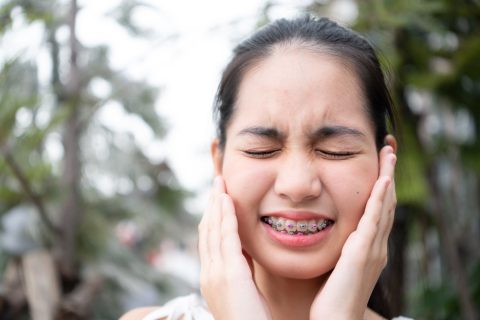
Do You Grind Your Teeth? Understanding Bruxism and How to Treat It
Are You Grinding Your Teeth at Night?
Do you wake up with jaw pain, headaches, or sensitive teeth? You might be grinding your teeth at night—without even realizing it. This condition, known as bruxism, affects millions of people and can lead to serious dental issues if left untreated.
Here’s what you need to know about bruxism and how Dr. Gregory Zabek can help protect your smile.
What Is Bruxism?
Bruxism is the involuntary clenching, grinding, or gnashing of teeth, most commonly during sleep (sleep bruxism), but it can also occur while you’re awake (awake bruxism). It can affect both children and adults and often goes undiagnosed until symptoms start to interfere with daily life.
Common Signs of Teeth Grinding
Many patients aren’t aware they grind their teeth until a dentist identifies the signs. Symptoms may include:
- Jaw soreness or stiffness
- Headaches or earaches, especially in the morning
- Worn-down or flattened teeth
- Tooth sensitivity or fractures
- Clicking or popping in the jaw joint (TMJ)
- Disrupted sleep or partner hearing grinding at night
If you’re experiencing any of these symptoms, it’s important to get evaluated before further damage occurs.
What Causes Bruxism?
Several factors may contribute to bruxism, including:
- Stress and anxiety (a leading trigger)
- Sleep disorders like sleep apnea
- Misaligned teeth or bite issues
- Lifestyle factors like caffeine, alcohol, or tobacco use
- Certain medications or neurological conditions
Dr. Zabek will work with you to identify possible causes and tailor a treatment plan that addresses both the symptoms and underlying triggers.
How Bruxism Can Damage Your Teeth
Chronic grinding puts excessive pressure on your teeth and jaw, which can lead to:
- Enamel erosion
- Chipped or cracked teeth
- Gum recession
- TMJ disorders
- Tooth mobility or loss in severe cases
Left untreated, bruxism can cause long-term damage and require extensive dental repairs. Early intervention is key.
Effective Treatments for Bruxism
At Gregory Zabek Advanced General & Cosmetic Dentistry, we offer several solutions to help patients manage bruxism and prevent dental damage:
1. Custom Night Guards
A professionally made night guard is one of the most effective treatments. Dr. Zabek creates a custom-fit appliance that cushions your teeth and jaw while you sleep, reducing grinding and its harmful effects.
2. Bite Adjustment or Dental Work
If bite misalignment is contributing to your grinding, Dr. Zabek may recommend selective reshaping of teeth or restorative work (like crowns) to even out your bite.
3. Stress Management & Lifestyle Changes
Since stress is a major cause of bruxism, managing anxiety through meditation, therapy, or lifestyle changes can significantly reduce symptoms.
4. Botox for Severe Cases
In some cases, small doses of Botox can relax overactive jaw muscles and provide relief for patients who haven’t responded to other treatments.
Protect Your Teeth—Get Evaluated Today
If you suspect you’re grinding your teeth, don’t wait for damage to occur. Dr. Zabek has decades of experience treating complex dental concerns with a personalized, compassionate approach. As a recognized Top Doc in San Francisco and a former professor of dental restoration, he combines advanced knowledge with state-of-the-art care.
Call us at (415) 362-1102 or contact us online to schedule your consultation.
Let’s protect your smile and keep your jaw healthy—for life.